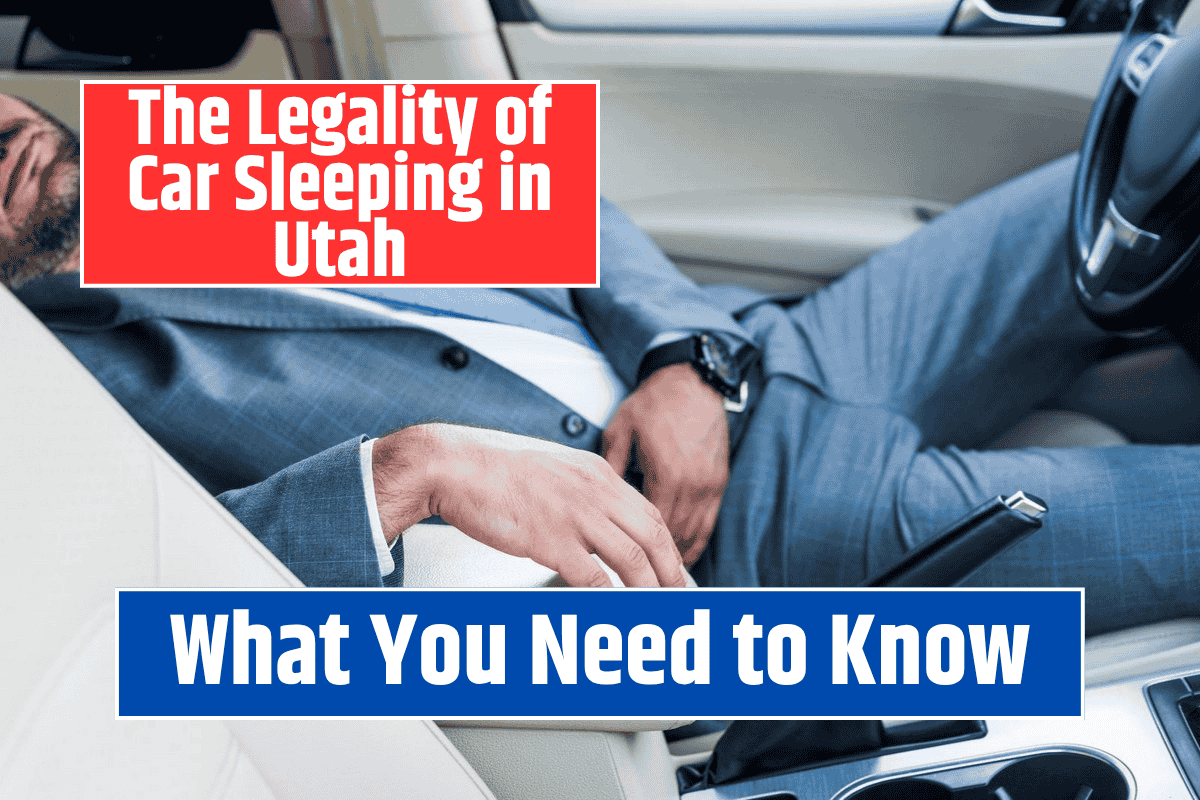Have you ever been on a long road trip, locked out of your house, or just too tired to drive and had no choice but to sleep in your car? While it might sound unusual to some, car sleeping is more common than you think, especially in a state like Utah, which has vast open areas, scenic drives, and camping spots.
But here’s the real question—is it legal to sleep in your car in Utah? This article covers everything you need to know about the rules, safety, and legalities around catching a nap in your vehicle in 2025.
Why Do People Sleep in Their Cars?
You might be surprised by how many different situations lead people to sleep in their cars. It’s not always about being homeless—it can be a matter of convenience, cost-saving, or emergency. Here are a few common reasons:
Road Trips
Utah has many long scenic highways. Drivers often choose to sleep in their car to save on hotel costs or when no accommodation is nearby.
Camping
Some travellers choose car camping instead of sleeping in a tent. It’s cheaper, warmer, and saves time setting up camp.
Locked Out of Home
Getting locked out without access to a locksmith late at night could leave your car as the only safe place to rest.
Whatever the reason, it’s useful to know when and where you can legally sleep in your car—especially in Utah.
Is It Legal to Sleep in Your Car in Utah?
The short answer: It depends on where you park.
Sleeping inside your car is not illegal by itself in Utah. However, where you park makes all the difference. Some areas restrict overnight parking, and rest stops in Utah do not officially allow overnight stays—though it may be allowed at law enforcement’s discretion.
Here’s what you need to know:
Sleeping in your car is legal, but parking laws still apply.
You cannot just park anywhere and sleep.
Be careful not to trespass or block traffic.
Where Can You Legally Sleep in Your Car in Utah?
1. Campgrounds
Designated campgrounds are one of the safest and most legal places to sleep in your car. You may need to pay a small fee, but you’ll have access to toilets, lighting, and peace of mind.
Tip: Look for land managed by the Bureau of Land Management (BLM), which often allows dispersed camping.
2. Truck Stops and Rest Areas
While Utah rest stops don’t allow overnight parking, some truck stops may permit it. Always check with the store or management before staying overnight.
3. 24-Hour Businesses (e.g., Walmart)
Some 24-hour retail stores may allow overnight parking, but this varies by location. It’s best to ask the store manager before settling in for the night.
4. Private Property (with permission)
If you have a friend or relative who owns land, you can legally sleep there with their permission. Even if it’s a stranger’s property, as long as you ask and get a “yes,” you’re good to go.
Is Sleeping in Your Car Safe?
Even if it’s legal, safety should always be your priority. Follow these tips to stay safe while sleeping in your vehicle:
Choose a well-lit area to reduce the chance of crime.
Avoid parking on the roadside or in unsafe neighbourhoods.
Lock all doors and keep your valuables out of sight.
Park on flat, stable ground to avoid rolling or discomfort.
Ventilate your car slightly to avoid stuffiness—just make sure it’s secure.
In Utah, sleeping in your car is legal in most cases—but only if you follow local parking rules. You can’t just stop anywhere, especially not overnight at rest stops, unless permitted by law enforcement. The safest option is to find a legal and secure parking spot, whether at a campground, truck stop, or with permission on private land.
So next time you feel tired on the road or need a quick nap in the middle of nowhere, you now know where and how to sleep safely in your car without breaking the law.












